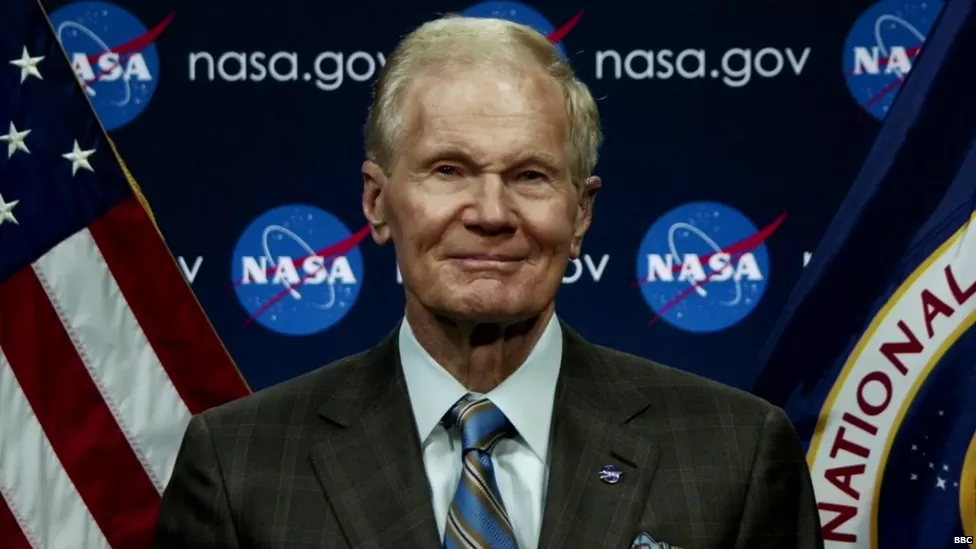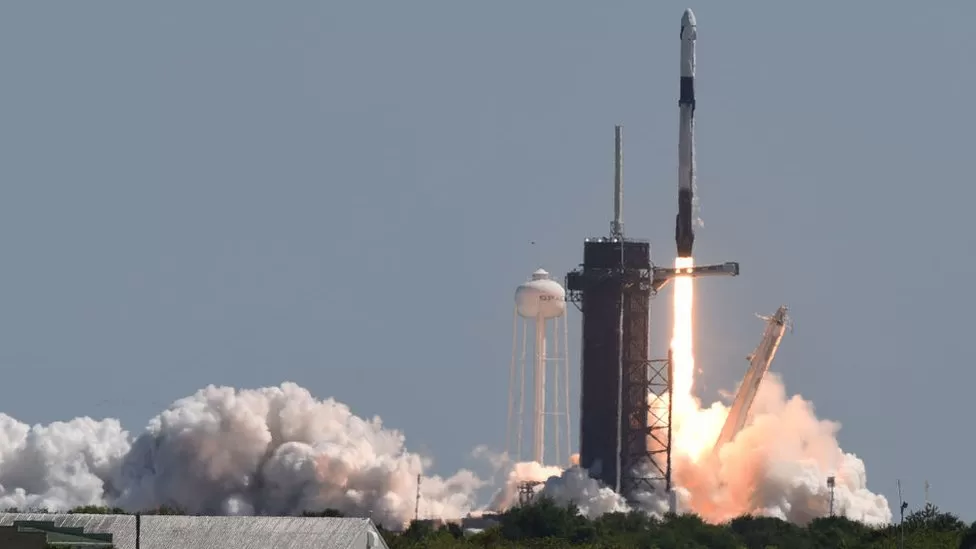The US is “in a space race with China to return to the moon”, says Nasa boss Bill Nelson.
In a BBC interview, Mr Nelson says he needs to ensure “we arrive first”.
His remarks resuscitate recollections of the 1960s and 1970s, when Nasa was in a space race with the Soviet Association. Yet, after 50 years, Nasa is utilizing privately owned businesses to do substantially more of the work.
Mr Nelson says they are pivotal in light of the fact that it considers the immense expenses to be shared, and for Nasa to draw on “the imagination of business visionaries in the confidential area”.
He focuses to Elon Musk’s SpaceX, which in 2021 was granted a $3bn (£2.4bn) agreement to construct a lunar lander, and has likewise fostered the most impressive rocket at any point fabricated.
Other confidential firms are likewise feeling the advantage of the space race. Recently the organization marked a $3.4bn manage Jeff Bezos’ Blue Beginning – likewise to construct a lander, however for later moon arrivals.
Those are only two organizations that are profiting from billions of dollars of government financing. Cash is being spent, to a limited extent in any event, to attempt to stay in front of China in the midst of a lot more extensive pressures between the world’s two greatest economies.

The head of NASA, Bill Nelson, says the US is dashing against China to return to the moon
In late August, India turned into the fourth country to accomplish a delicate arriving on the Moon and the first to arrive at the lunar south pole district.
Notwithstanding that achievement, China’s space program is the one generally firmly watched by Nasa.
China is the main country to have its own space station, it has proactively taken moon tests back to earth, and it has plans to arrive at the polar locales of the lunar surface.
This stresses Mr Nelson: ” What I’m worried about is that we find water on the south pole of the moon, China arrives, and China says this is our region. You can’t come here, it’s our own.”
Mr Nelson contends that China’s activities to construct fake islands to guarantee sway over pieces of the South China Ocean support his anxiety.
Mr Nelson likewise brings up that China has not joined to the US-drove Artemis Accords, expected as a system for best practice in space and on the Moon.
China says it is focused on the serene investigation of room, and has recently excused US worries about its space program as “a slanderous attack against China’s typical and sensible space tries”.
The contention is prodding enormous speculation by Nasa. In the year to the furthest limit of September 2021 the organization says its spending was valued at $71.2bn to the US economy – a 10.7% expansion on the prior year.
While large names like SpaceX could draw in the titles, Nasa’s spending ventures a lot further into the economy.
“A fourth of our spending is going to private ventures,” says Mr Nelson.
That cash can speed up the development of little firms, especially new companies, says Sinead O’Sullivan, a previous Nasa specialist and presently space financial expert at Harvard Business college.
The public authority frequently goes about as a first client to fire up firms and those agreements can permit them to move toward private financial backers and collect much more cash, she says.
“A ton of the time we discuss funding and confidential value, nonetheless, states are similarly while perhaps not more significant,” Ms O’Sullivan says.
The race back to the moon may be prominent, however it has helped spike a blast in other space movement that could be undeniably more productive.
In 1957 Russia turned into the principal country to place a satellite in circle as it battled the first space race with the US. Presently there are a little more than 10,500 satellites circling earth, as indicated by the European Space Organization.
Over the course of the past ten years, Chad Anderson, organizer behind trading company Space Capital, credits SpaceX for prodding the business on.
“The main explanation that we’re talking about space as a venture class today is a direct result of SpaceX,” he says. ” Barely quite a while back, before their most memorable business flight, the whole market was truly government ruled.”
About portion of the satellites currently in circle were sent off over the most recent three years, as per examination firm BryceTech.
That is primarily because of only two organizations One Web and Elon Musk’s Starlink.
“The space economy is a lot more extensive than simply rockets and satellite equipment. The undetectable spine controls our worldwide economy,” makes sense of Mr Anderson.
With the developing number of satellites in circle he says a rising number of organizations are finding new purposes for the information they give, remembering for the horticulture, protection and oceanic ventures.

RocketLab organizer Peter Beck sees a space industry worth many billions of dollars
New Zealand-based RocketLab is one more large player in the space economy.
An opponent to SpaceX, it has previously finished 40 send-offs for clients including Nasa and different US government organizations.
Its organizer Peter Beck went from dishwasher specialist to sending off rockets into space, and says that is just a glimpse of something larger with regards to the monetary open doors that lie past earth.
“Send off is about a $10bn opportunity. Then, at that point, there’s framework, such as building the satellites, it’s about a $30bn opportunity. And afterward there’s applications and that is about a $830bn opportunity.”
He isn’t the only one to make large cases. The US speculation bank Morgan Stanley assessed the worldwide space industry could develop to be worth more than $1tn a year by 2040.
What may be next for space-faring private firms?
Mr Beck is wary about open doors on the moon, especially mining.
“Right now, it’s not monetarily feasible to go to the moon, mine and take it back to Earth.”
Nasa’s Bill Nelson sees prospects in clinical exploration. He focuses to valuable examination into precious stone development led on the Worldwide Space Station in 2019 by drugs firm Merck, which aided fostered a malignant growth treatment.
He additionally says fiber optics may be fabricated all the more really in zero gravity.
“What you will see at last is part of business movement in low Earth circle.”

